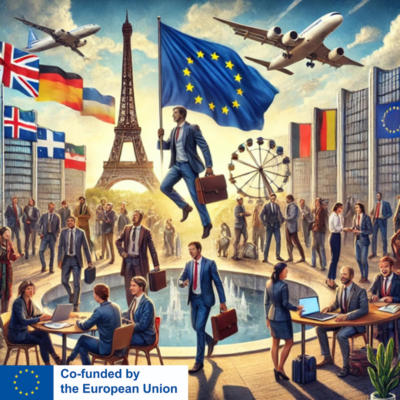Searching for a job in a foreign country can be both exciting and overwhelming. For many job seekers, relocating to Europe introduces not only new professional opportunities but also challenges related to cultural differences. Culture shock is a common experience when moving to a new country, as unfamiliar social norms, behaviors, and environments can make it difficult to adapt quickly. However, with the right approach, job seekers can overcome culture shock and successfully integrate into European workplaces. Here are three key strategies to help ease the transition and boost your chances of success:
- Embrace Local Customs and Work Practices
Every country in Europe has its unique work culture, and job seekers should strive to understand and embrace these differences. For example, the hierarchical structures in Germany may be different from the collaborative work environments in the Netherlands or the more flexible work hours in Spain. To overcome culture shock, it’s essential to learn about local customs, workplace etiquette, and communication styles. Take the time to observe how colleagues interact with each other, how decisions are made, and how feedback is given.
Additionally, embracing social customs outside of work, such as greeting etiquette, dining customs, and local traditions, will help you feel more connected to the local culture. Participating in local events or social activities can also provide you with opportunities to make new friends and network, making it easier to integrate into both the workplace and the community.
- Learn the Local Language (or Key Phrases)
While English is widely spoken across Europe, especially in international businesses, learning the local language of the country you’re job-seeking in can significantly enhance your ability to integrate into the workplace and society. Even if you’re not fluent, knowing key phrases can make a big difference in how you are perceived by colleagues and potential employers. Being able to greet coworkers in their native language, understand basic office jargon, or participate in casual conversations can help you build stronger relationships.
Language learning apps, online courses, and local language classes are valuable resources to get started. Showing an effort to learn the local language demonstrates respect for the culture and can increase your job prospects by making you more appealing to employers.
- Build a Support Network
A support network is crucial for overcoming culture shock and adjusting to life in a new country. Connecting with other expatriates, joining professional groups, or participating in social clubs can help you navigate cultural differences and provide emotional support during the adjustment period. Many cities in Europe have expatriate communities where you can meet people who have gone through similar experiences and can offer advice on how to overcome challenges in the job market and daily life.
Additionally, don’t hesitate to seek mentorship from colleagues or locals who can guide you through the intricacies of the European job market. Building a strong network of both locals and fellow foreigners will make your transition smoother and provide valuable career opportunities.
Moving to Europe for a job can be a life-changing experience, but it often comes with challenges related to cultural adaptation. By embracing local customs, learning the local language, and building a strong support network, job seekers can overcome culture shock and thrive in their new environment. With these strategies in hand, you’ll be better prepared to navigate the European job market and successfully integrate into your new workplace and community.
The publication is prepared within the Jean Monnet module “EU Experiences for Enhancing Youth Employability through Professional Skills Development”, funded by the Erasmus+ program (ERASMUS – JMO -2021-MODULE -SKILLS4JOB-101047867)
Funded by the European Union. Views and opinions expressed are however those of the author(s) only and do not necessarily reflect those of the European Union or the European Education and Culture Executive Agency (EACEA). Neither the European Union nor EACEA can be held responsible for them.
